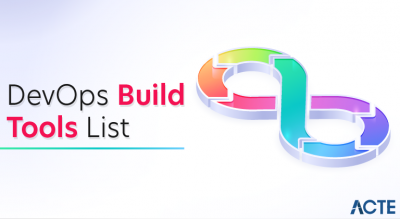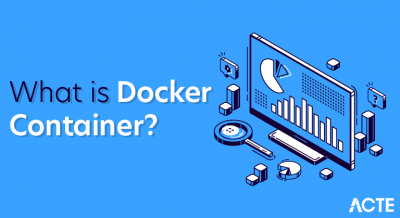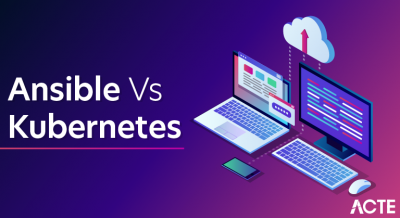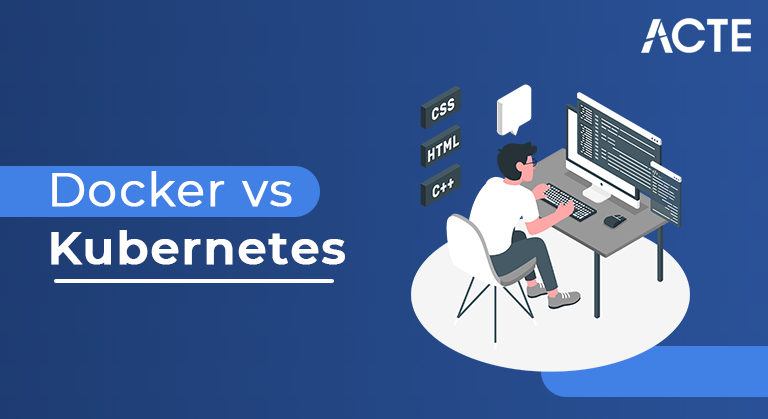
A fundamental difference between Kubernetes and Docker is that Kubernetes is meant to run across a cluster while Docker runs on a single node.
- Introduction of docker and kubernetes
- The Rise of Containerization and Docker for Kubernetes vs Docker
- What are containers?
- Kubernetes vs Docker: Advantages of Docker Containers
- What is Docker? Is Docker free?
- What is Docker used for?
- What is a Docker file?
- The Need for Orchestration Systems of Docker vs Kubernetes
- What does Kubernetes and other orchestration systems do?
- Kubernetes vs Docker Swarm
- What is Kubernetes used for?Is Kubernetes free?
- How does Kubernetes work?
- Kubernetes architecture and its components
- Difference between Docker and Kubernetes
- Conclusion
Introduction of docker and kubernetes
“Kubernetes vs. Docker” is a word which you pay attention increasingly in recent times as Kubernetes will become ever greater famous as a box orchestration solution.However, “Kubernetes vs. Docker” is likewise a truly deceptive word. When you ruin it down, those phrases don’t suggest what many human beings intend them to suggest, due to the fact Docker and Kubernetes aren’t direct competitors.
The Rise of Containerization and Docker for Kubernetes vs Docker
It is not possible to speak approximately Docker with out first exploring containers.
- Containers remedy a important problem withinside the existence of software improvement. When builders are writing code they’re running on their personal neighborhood improvement environment. When they’re geared up to transport that code to manufacturing that is in which troubles arise. The code that labored flawlessly on their device doesn’t paintings in manufacturing. The motives for this are varied; distinct running system, distinct dependencies, distinct libraries.
- Containers solved this important problem of portability permitting you to split code from the underlying infrastructure it’s far jogging on. Developers ought to bundle up their software, inclusive of all the boxes and libraries it wishes to run correctly, right into a small box image. In manufacturing that box may be run on any pc that has a containerization platform.
What are containers?
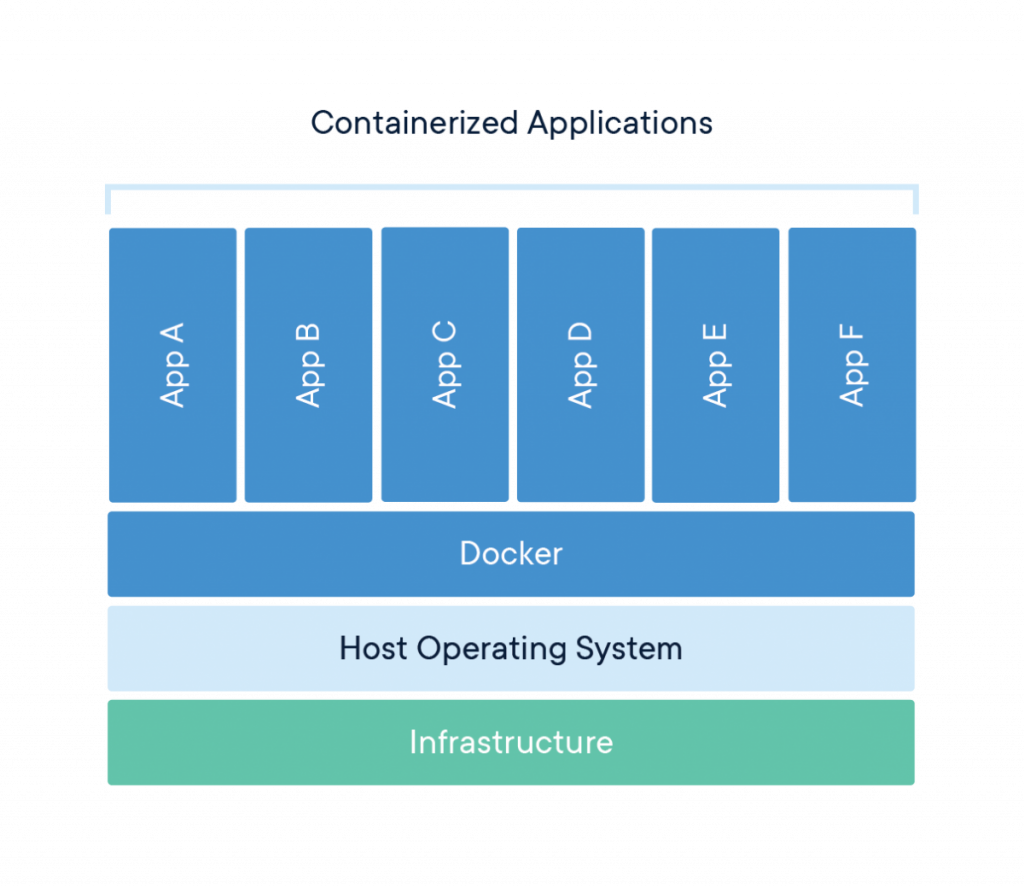
- In addition to fixing the principal task of portability, bins and field structures offer many blessings over conventional virtualization.
- Containers have an incredibly small footprint. The field simply wishes its software and a definition of all the packing containers and libraries it calls for to run. Unlike VMs which every have a whole reproduction of a visitor running system, field isolation is performed at the kernel stage with out the want for a visitor running system. In addition, libraries may be throughout bins, so it gets rid of the want to have 10 copies of the equal library on a server, in addition saving space. If I even have three apps all going for walks node and express, I do not ought to have three times of node and express, the ones apps can proportion the ones packing containers and libraries. Allowing for packages to come to be encapsulated in self-contained environments permits for faster deployments, nearer parity among improvement environments, and limitless scalability.
Kubernetes vs Docker: Advantages of Docker Containers
What is Docker? Is Docker free?
Docker is presently the maximum famous field platform. Docker seemed available in the marketplace on the proper time, and turned into open supply from the beginning, which possibly brought about its modern-day marketplace domination. 30% of firms presently use Docker of their AWS surroundings and that quantity maintains to grow.
What is Docker used for?
When maximum humans speak approximately Docker they may be speakme approximately Docker Engine, the runtime that lets in you to construct and run containers. But earlier than you could run a Docker field they ought to be built, beginning with a Docker File.
What is a Docker file?
The Docker File defines the whole lot had to run the photograph together with the OS community specifications, and record locations. Now which you have a Docker record, you could construct a Docker Image that is the portable, static factor that receives run at the Docker Engine. And in case you don’t need to begin from scratch Docker even has a provider known as Docker Hub, in which you could save and percentage images.
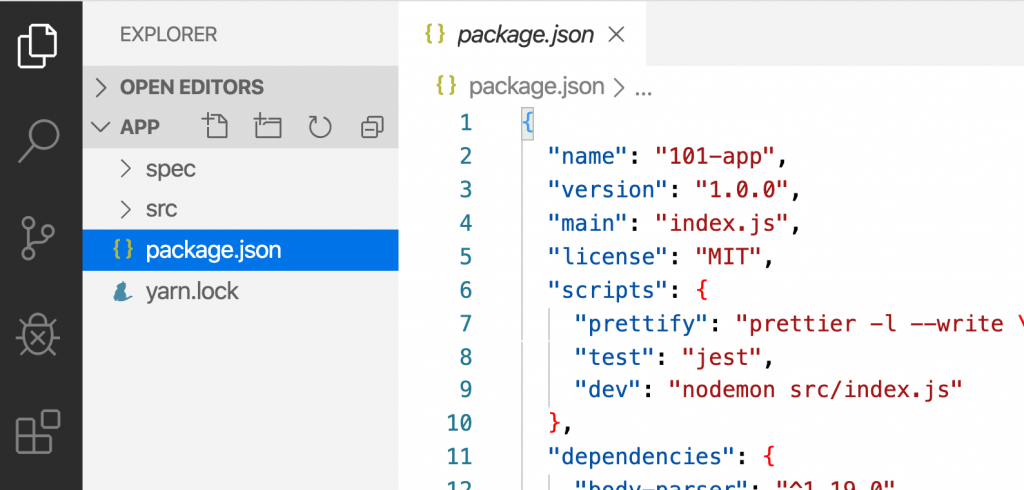
- How might all of those packing containers be coordinated and scheduled?
- How do you seamlessly improve an software with none interruption of service?
- How do you display the fitness of an software, recognize while some thing is going incorrect and seamlessly restart it?
The Need for Orchestration Systems of Docker vs Kubernetes
While Docker supplied an open preferred for packaging and dispensing containerized applications, there arose a brand new problem. Docker Container Problems:
- Handle a huge extent of packing containers and customers, simultaneously. An utility may also have lots of packing containers and customers interacting with every different on the equal time; coping with and preserving tune of those interactions calls for a complete normal gadget designed particularly for that purpose.
- Manage provider discovery and conversation among packing containers and customers. How does a person discover a field and live in touch with it? Providing every microservice with its own, integrated features for provider discovery might be repetitive and enormously inefficient at best; in practice, it’d be in all likelihood to cause insupportable slowdowns (or gridlock), at scale.
- Balance masses efficiently. In an ad-hoc, un-orchestrated environment, masses on the field stage are in all likelihood to be primarily based totally in large part on person necessities on the moment, ensuing in enormously imbalanced masses on the server stage, at the side of logjams due to the inefficient allocation and ensuing constrained availability of packing containers and gadget resources. Load-balancing replaces this semi-chaos with order and green useful resource allocation.
- Authentication and safety. An orchestration gadget which includes Kubernetes makes it smooth to address authentication and safety on the infrastructure (instead of the utility) stage, and to use regular guidelines throughout all platforms.
- Multi-platform deployment.
- An orchestration gadget serves as a dynamic, complete infrastructure for a field-primarily based totally utility, permitting it to function in a protected, enormously prepared environment, whilst coping with its interactions with the outside world.
- Kubernetes is well-applicable to the venture and is one of the motives it has grow to be so popular.
What does Kubernetes and other orchestration systems do?
An orchestration gadget like Kubernetes and Docker Swarm must:-
Kubernetes vs Docker Swarm
When maximum human beings speak about “Kubernetes vs. Docker,” what they virtually imply is “Kubernetes vs. Docker Swarm.” The latter is Docker’s very own local clustering answer for Docker bins, which has the benefit of being tightly included into the environment of Docker, and makes use of its very own API. Like maximum schedulers, Docker Swarm affords a manner to manage a huge variety of bins unfold throughout clusters of servers. Its filtering and scheduling machine permits the choice of gold standard nodes in a cluster to set up bins.
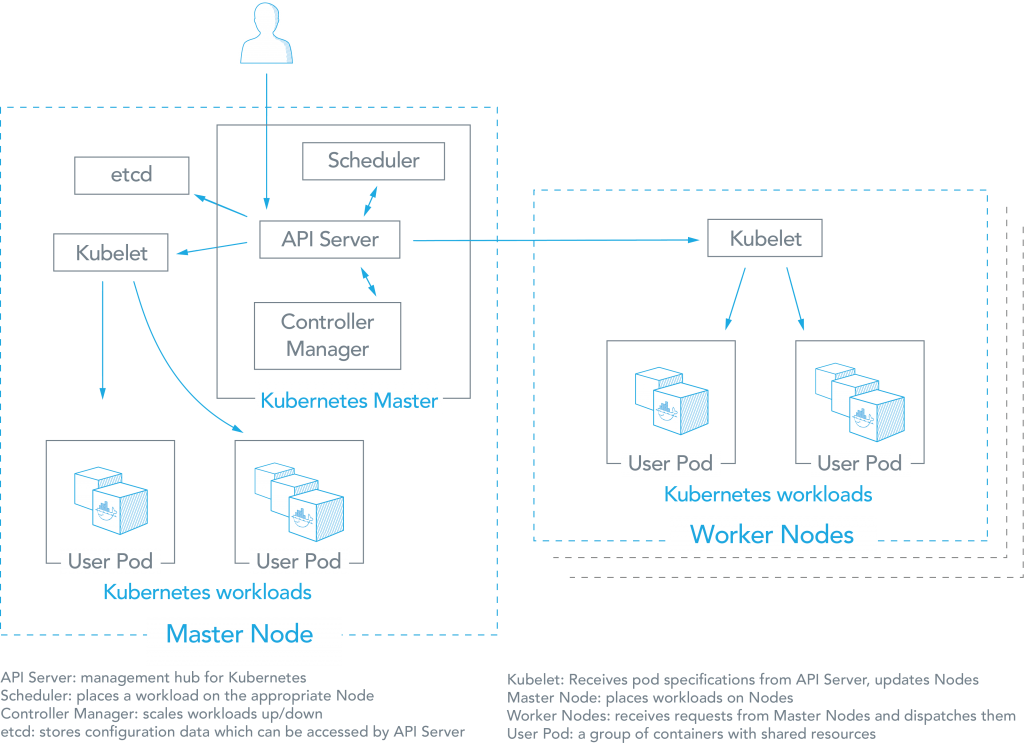
What is Kubernetes used for?Is Kubernetes free?
Kubernetes is the field orchestrator that changed into evolved at Google which has been donated to the CNCF and is now open source. It has the benefit of leveraging Google’s years of information in field management. It is a complete machine for automating deployment, scheduling and scaling of containerized applications, and helps many containerization equipment including Docker.For now, Kubernetes is the marketplace chief and the standardized way of orchestrating packing containers and deploying allotted applications. Kubernetes may be run on a public cloud carrier or on-premises, is exceedingly modular, open source, and has a colourful community. Companies of all sizes are making an investment into it, and lots of cloud companies provide Kubernetes as a carrier. Sumo Logic offers aid for all orchestration technologies, which include Kubernetes-powered applications.
How does Kubernetes work?
It is simple to wander away withinside the info of Kubernetes, however on the stop of the day, what Kubernetes is doing is quite simple. Cheryl Hung of the CNCF describes Kubernetes as a manage loop. Declare the way you need your gadget to look (three copies of field photograph a and a couple of copies of field photograph b) and Kubernetes makes that happen. Kubernetes compares the favored nation to the real nation, and in the event that they aren’t the same, it takes steps to accurate it.
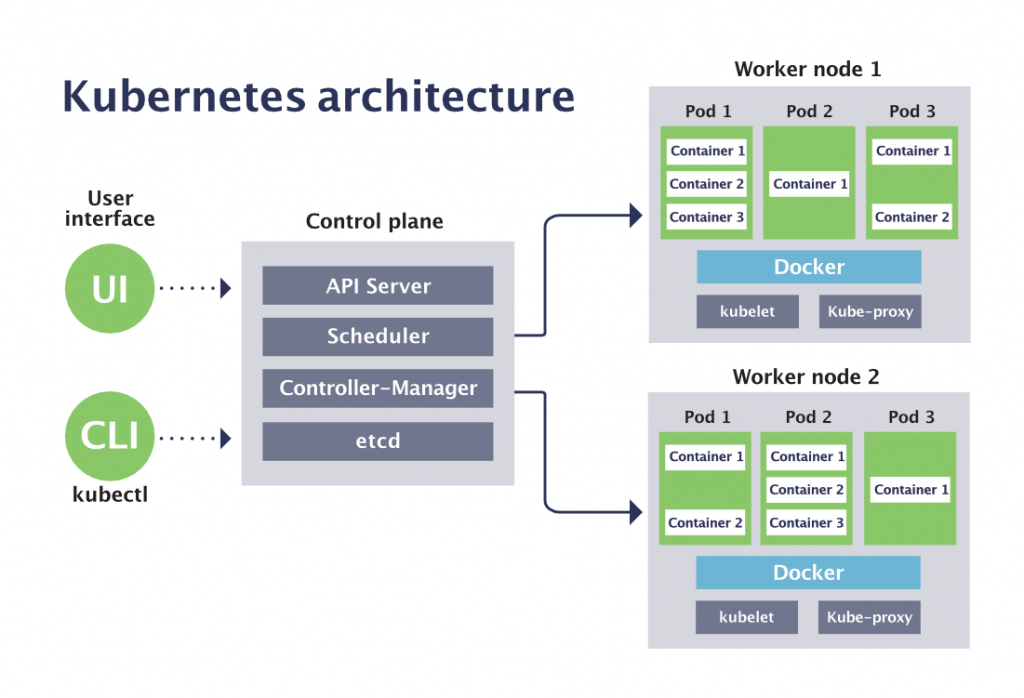
- The Control Plane – The Master.
- Nodes – Where pods get scheduled.
- Pods – Holds containers.
Kubernetes architecture and its components
Kubernetes is made up many additives that don’t recognise are care approximately every different. The additives all communicate to every different via the API server. Each of those additives operates its very own feature after which exposes metrics, that we are able to accumulate for tracking later on. We can ruin down the additives into 3 predominant parts:-
- Docker Swarm is orchestration generation much like Kubernetes. Docker Swarm is evidently tightly incorporated inside the Docker surroundings and specializes in the clustering of Docker packing containers.
- A predominant distinction among Docker and Kubernetes is that Docker runs on a unmarried node, while Kubernetes is designed to run throughout a cluster.
- Another distinction among Kubernetes and Docker is that Docker may be used with out Kubernetes, while Kubernetes desires a field runtime with a purpose to orchestrate.
- Since its preliminary launch in 2015, Kubernetes has been extensively adopted, and at this point, has turn out to be the de facto popular for field control and orchestration. Kubernetes presents an infrastructure-degree framework for orchestrating packing containers at scale, and for coping with consumer interplay with them.
- In lots the identical way, Docker has turn out to be the same old for field improvement and deployment. Docker presents a platform for developing, deploying, and going for walks packing containers at a miles extra basic, nuts-and-bolts degree. It is the floor on which the Kubernetes framework sits.
Difference between Docker and Kubernetes
It’s quite not unusualplace to evaluate Kubernetes and Docker, however, a higher assessment is Kubernetes vs Docker Swarm:-
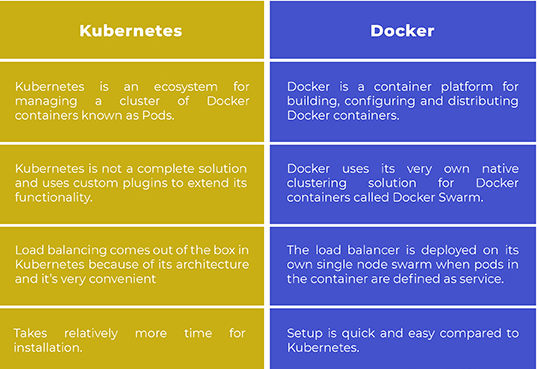
Conclusion
Containers are the inspiration of cutting-edge applications. Docker presents the toolset to without difficulty create box pictures of your applications, and Kubernetes offers you the platform to run it all.Now which you realize the fundamental portions of the puzzle and feature a higher concept of what containers, Docker, and Kubernetes are all about, you could study greater at Kubernetes Learning Path.


